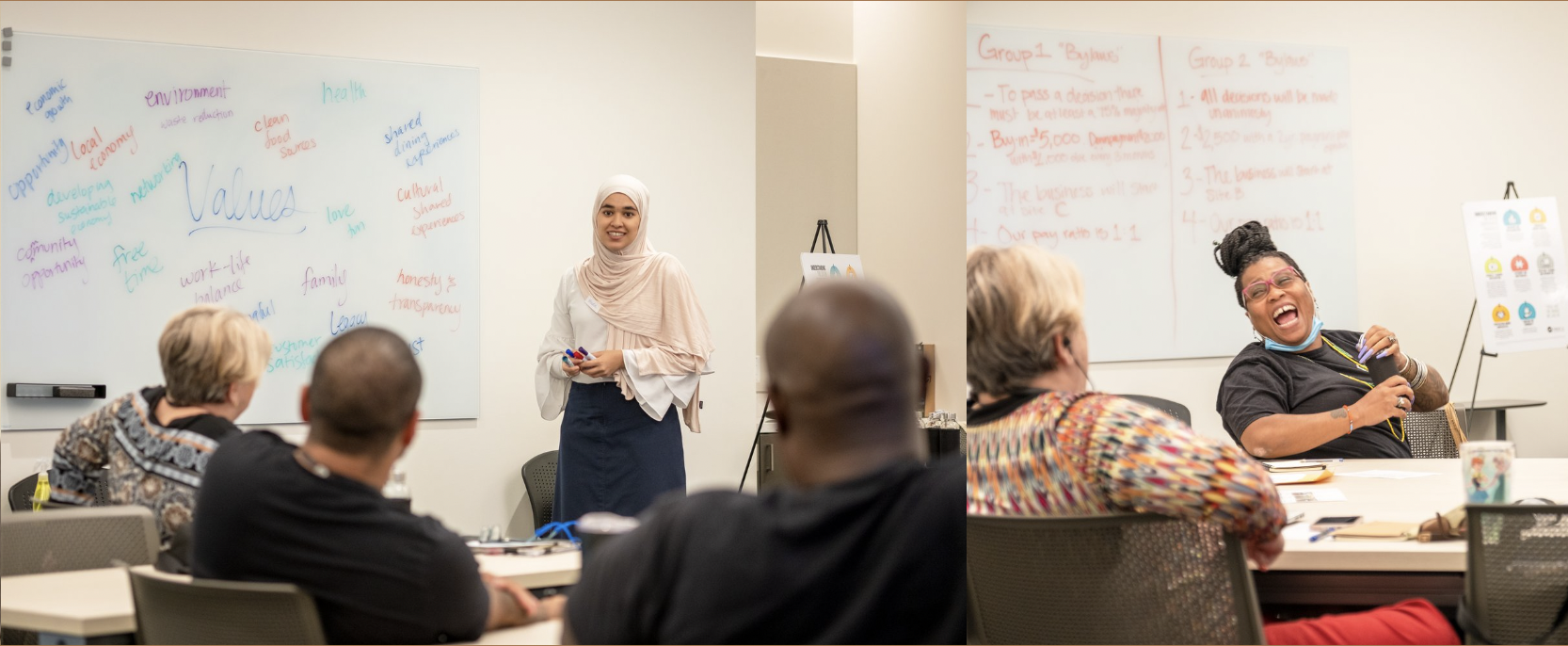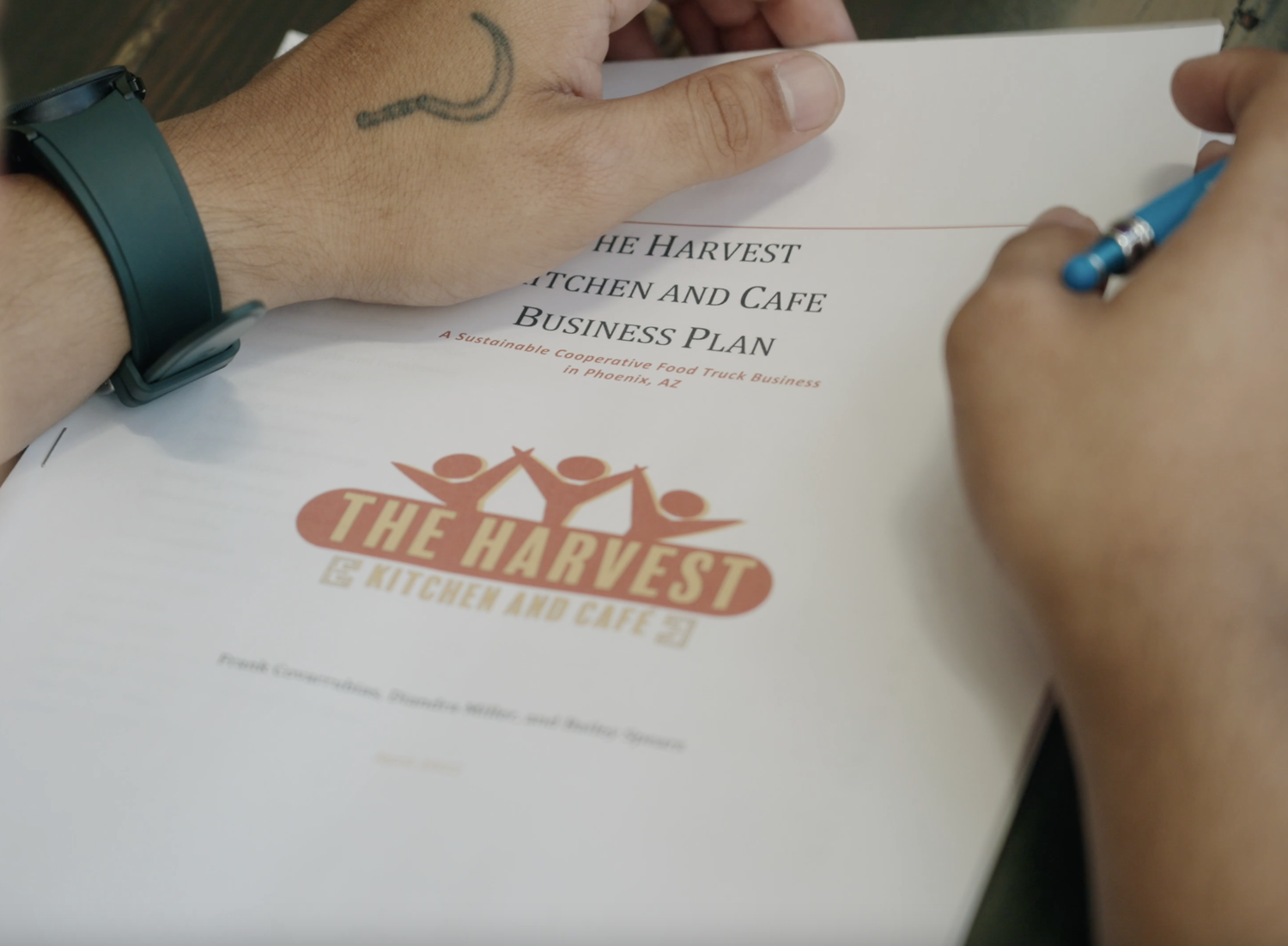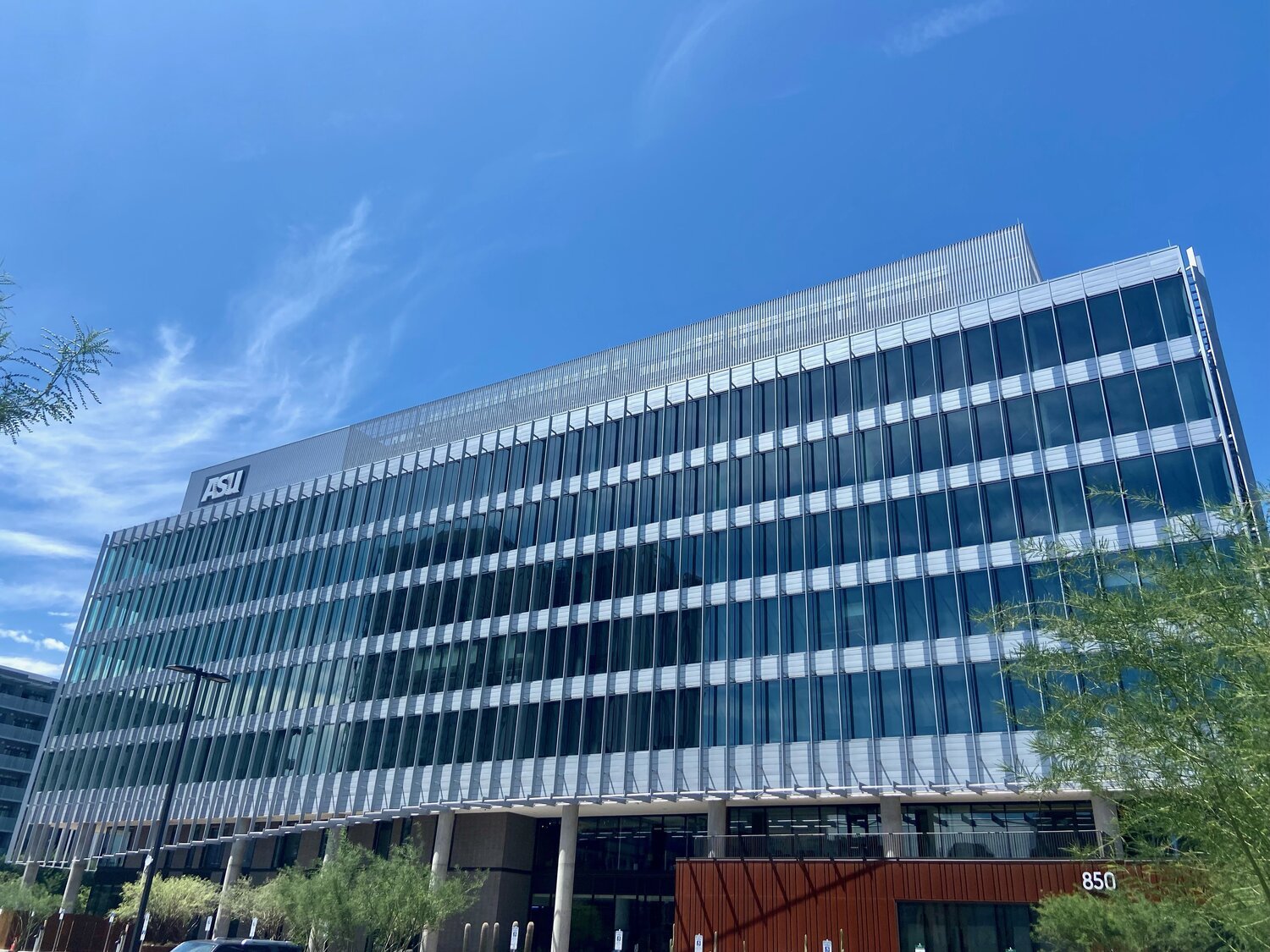
10-Week Sustainable Cooperative Food Business Training Program
Fall Program Applications are now closed.
Training Program Commercial
Training Program Short Documentary
This program leverages a unique approach to business development that centers the cooperative business model and sustainability at the core of its entrepreneurial training. Through the lens of sustainability and cooperation, participants receive training in the business skills required to co-create viable cooperative food businesses. These skills include sustainable product and service development, marketing, budgeting, and business plan creation.
This program aims to help local entrepreneurs cooperatively develop business ideas and plans that pursue economic viability while caring for the environment and creating community benefit.
About the Program
Offered free of charge in partnership with the City of Phoenix, for City of Phoenix Residents.
Worker-Cooperative Model
In this program participants are trained on how to activate the worker-cooperative business model. Worker-cooperatives, also called employee-owned cooperatives, are values-driven businesses whose main purpose is to create worker and community benefit. As the name suggests, worker-cooperatives are equitably owned and democratically controlled by their workers.
During the program participants are organized into groups based on their business interests. Once groups are formed, participants work with their group members to cooperatively develop food business ideas. As such, participants are required to work together to create shared business plans and pitches that demonstrate their knowledge of sustainability and cooperative business. We do not require that the business groups stay together after the program.
Image: Harvest Kitchen and Cafe, Program Graduates, Spring 2022
Sustainability
Sustainability is a model of living and thriving that balances human and environmental wellbeing with economic viability. Sustainability is activated through intentional and regenerative practices, such as informed decision making.
In this program, while developing their cooperative business plans, we encourage participants to consider three main facets of sustainability:
Environmental Sustainability: The consideration and accounting of the cooperative’s impact on ecosystems and natural resources, locally and globally.
Economic Sustainability: Fostering economic growth and stability within our businesses and the local economy.
Social Sustainability: The promotion of individual and community wellbeing through practices that foster diversity, equity, inclusion, and accessibility.
Image: Growers Collective, Program Graduates, Spring 2022
Food Economy
This program focuses on the development of business ideas within the food economy, thereby requiring course participants to focus on developing food businesses.
The program covers the business development skills needed to plan for a cooperatively owned food business — such as how to develop sustainable products and services, marketing, budgeting, and more!
It is important to note that we do NOT teach technical food business skills such as how to grow or prepare food. Participants are encouraged to develop food business ideas based on the knowledge, skills, and expertise they already possess at the start of the program.
Examples of food businesses per food economy sector
Program Details
-

Program Objectives
Participants learn how to start or work a sustainable cooperative food business. The program walks participants through all important business areas and conveys a broad set of business skills in order to build participants’ capacity for sustainable cooperative business.
The goal is for participants to leave feeling empowered to confidently develop and implement business plans for sustainable cooperative food businesses.
-
Program Structure
Participants meet twice a week in person for lectures and working sessions. Each session is prepared and delivered by experts in the fields of sustainability, food economy, entrepreneurship, business development, and employee ownership. We work with cooperative business examples to make content accessible to all types of learners.
As participants go through the 10-week program, they collaborate in teams with their peers to develop a business plan or become familiar with a food business converting to a cooperative. Each team works with a mentor who provides tailored input and feedback.
The end of the program is celebrated with a community showcase event where the entrepreneurial groups present their business pitches to friends, family, and community members!
-

Program Eligibility
This program is specifically offered by the City of Phoenix for residents of the City of Phoenix, AZ. Residents 18 years and up of all social background are invited to apply. No prior business or sustainability experience is required.
Thrive Consultancy strives to empower groups and individuals who are often excluded from entrepreneurship and business opportunities. Each program cohort has up to 25 seats available.
We encourage women, BIPOC, and members of underserved communities to apply.
-

Program Topics
Over the course of 10 weeks, this program covers many relevant business topics, including:
Business plan development;
Employee-ownership (cooperative) practices;
Product development;
Sustainable operations, & sourcing;
Funding;
Marketing;
Budgeting;
And more!
Aside from the business capacities participants build, at the end of the program, they have a cooperatively created sustainable business plan, budget, and pitch!
-

Program Logistics
Participants meet twice a week, in-person, for two hours each session.
-

Participant Commitment
To create successful businesses, participants are required to commit to full participation (4 hours in-person attending the sessions and 3 hours each week outside of the sessions) for the 10-week duration of the program. Participation includes attending the weekly training sessions and working on business development assignments outside of the sessions.
For the fourth time, the City of Phoenix is funding this 10-week training program for City of Phoenix residents. The City of Phoenix is committed to developing more sustainable businesses with a particular focus on food entrepreneurship and worker cooperatives. The City is funding Thrive Consultancy, which is supported by the Sustainable Food Economy Lab at Arizona State University, to deliver this training program.For the fourth time, the City of Phoenix is funding a 10-week training program for City of Phoenix residents interested in starting or joining a cooperative food business. The City of Phoenix is committed to developing more sustainable businesses with a particular focus on food entrepreneurship and worker cooperatives. The City is funding Thrive Consultancy, and is supported by the Sustainable Food Economy Lab at Arizona State University, to deliver this training program.
Our Partners
-

This program is funded by the City of Phoenix.
-

The Sustainable Food Economy Lab provides program support and evaluation.
Applications are closed
If you applied please make sure to check your email for a message from thriveconsultancyinc@gmail.com, please note it may be in your spam folder.
Please email us at thriveconsultancyinc@gmail.com if you have any questions.



